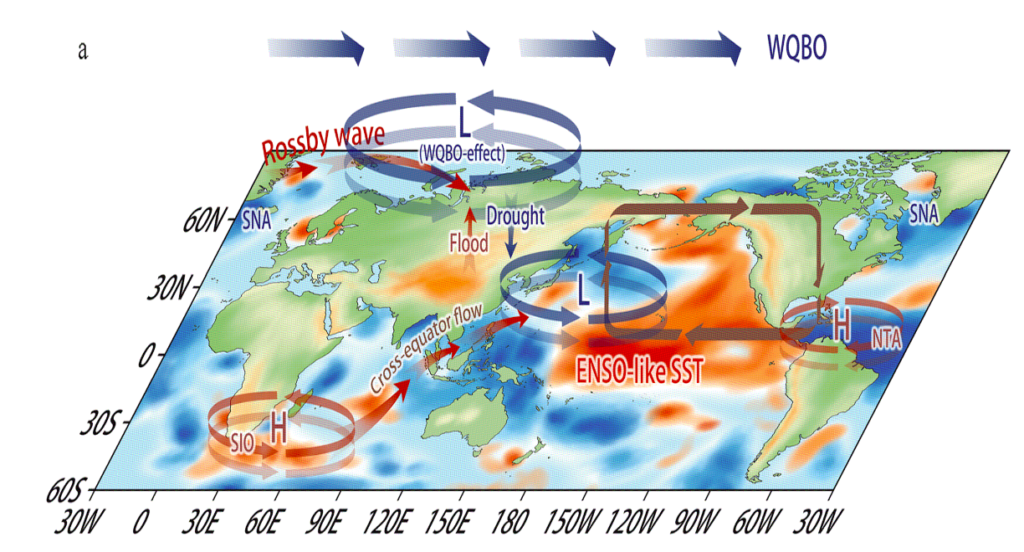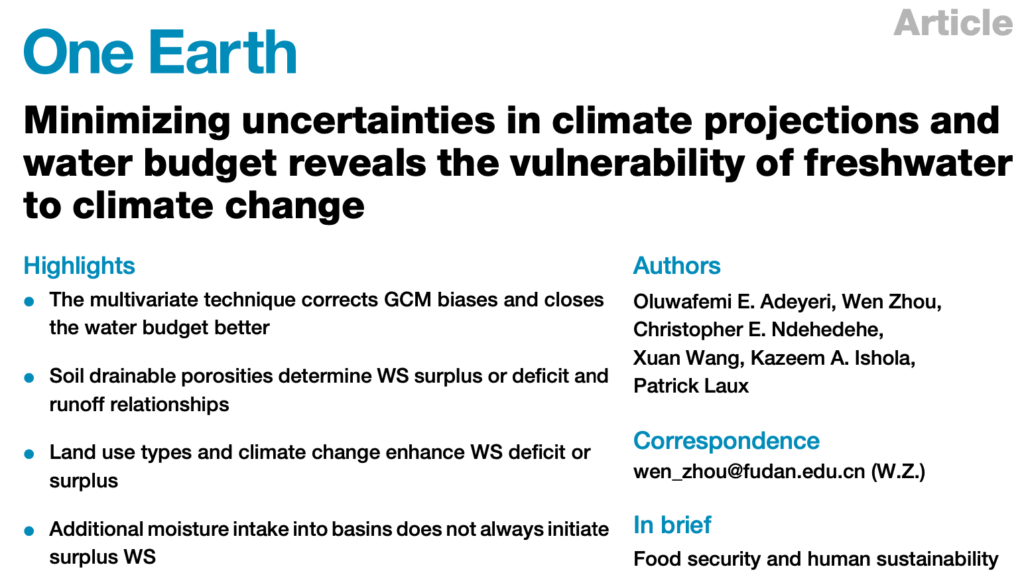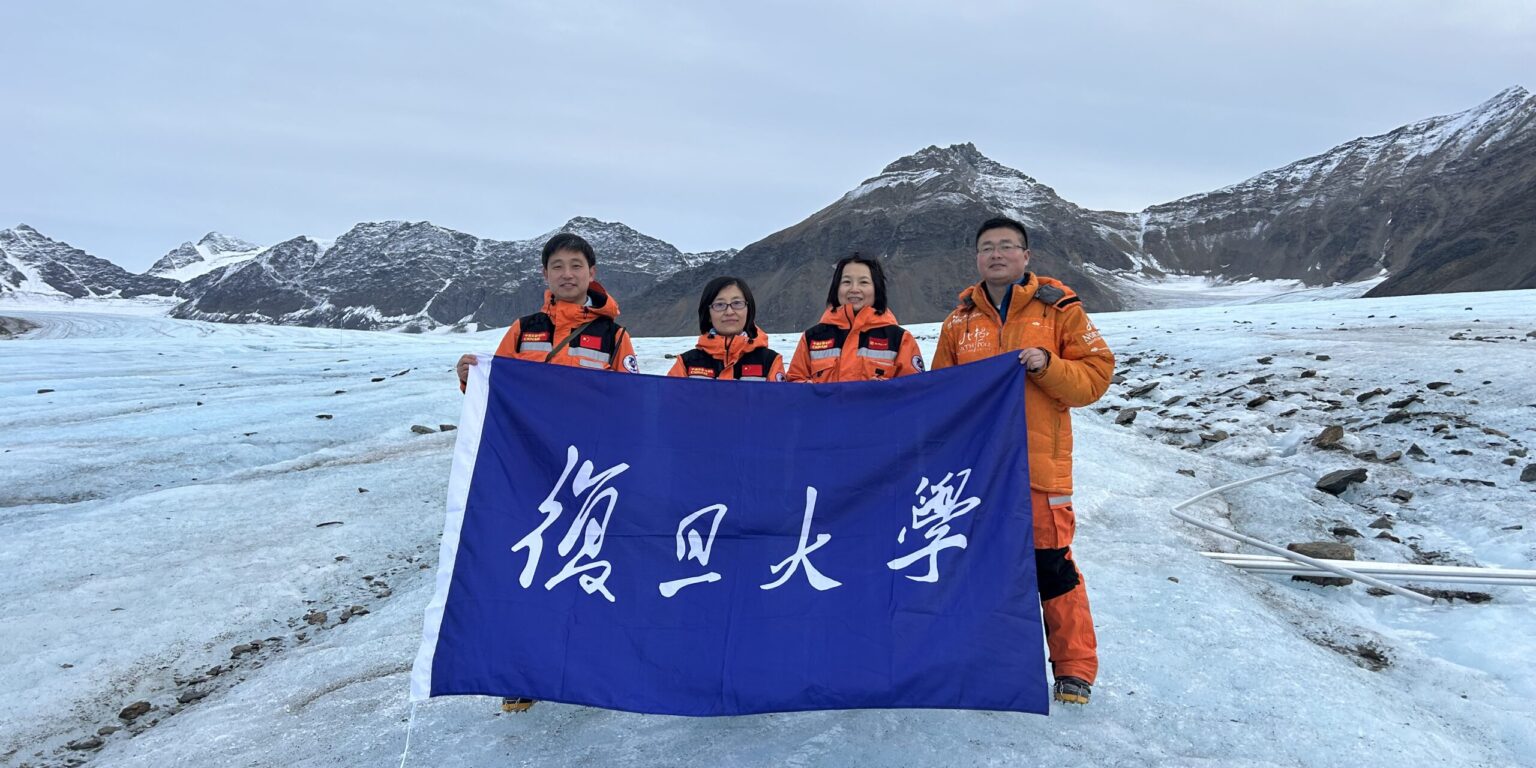
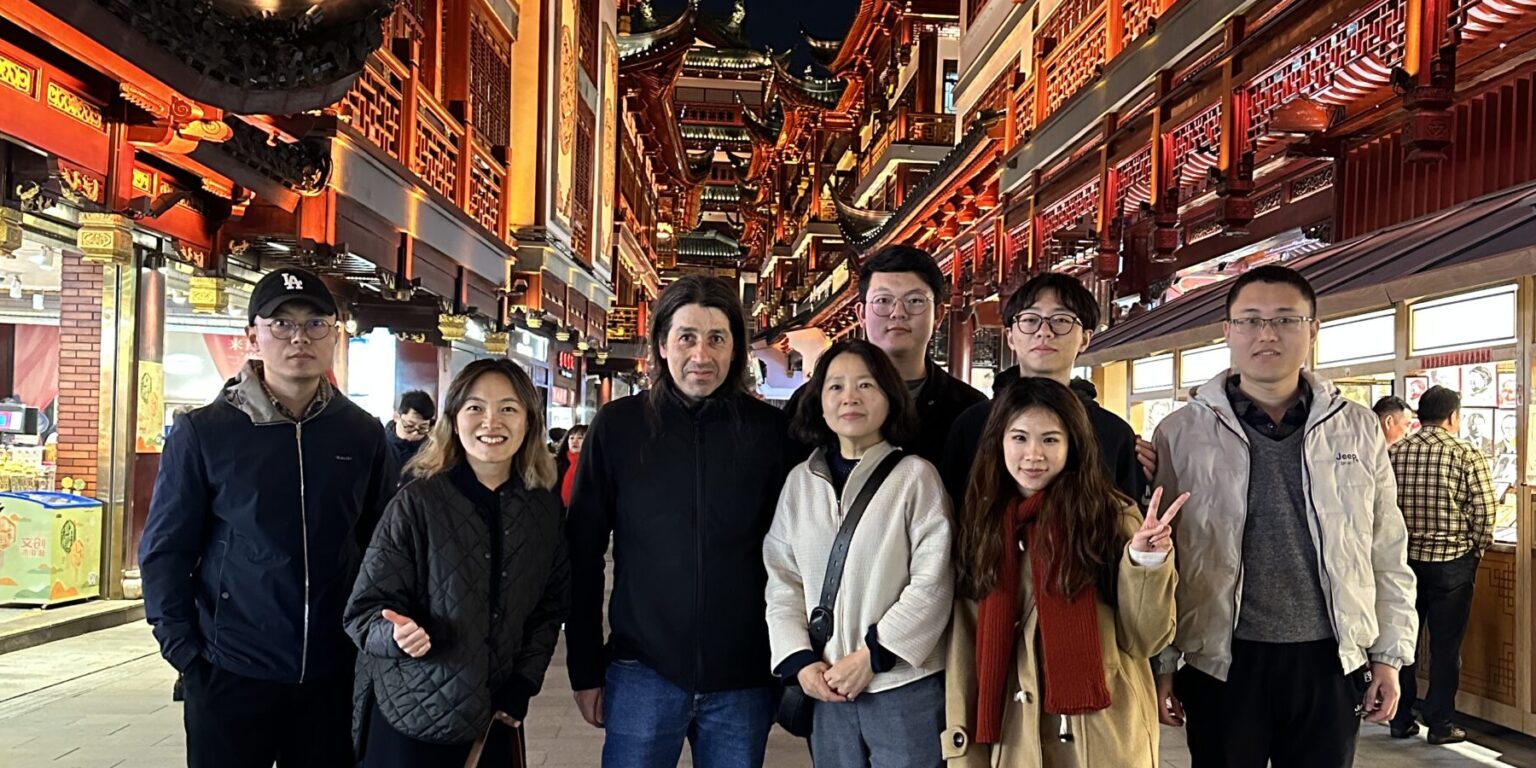
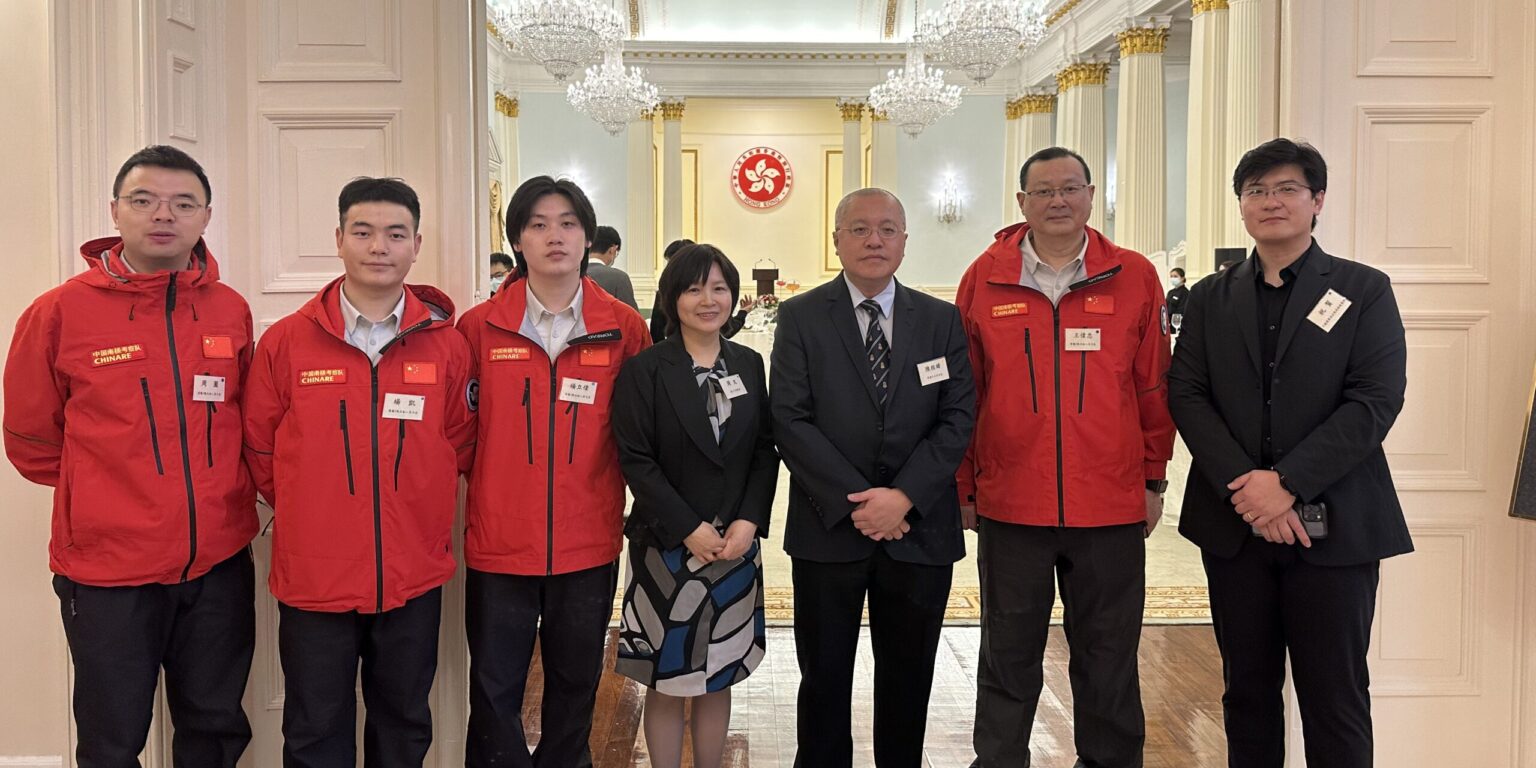
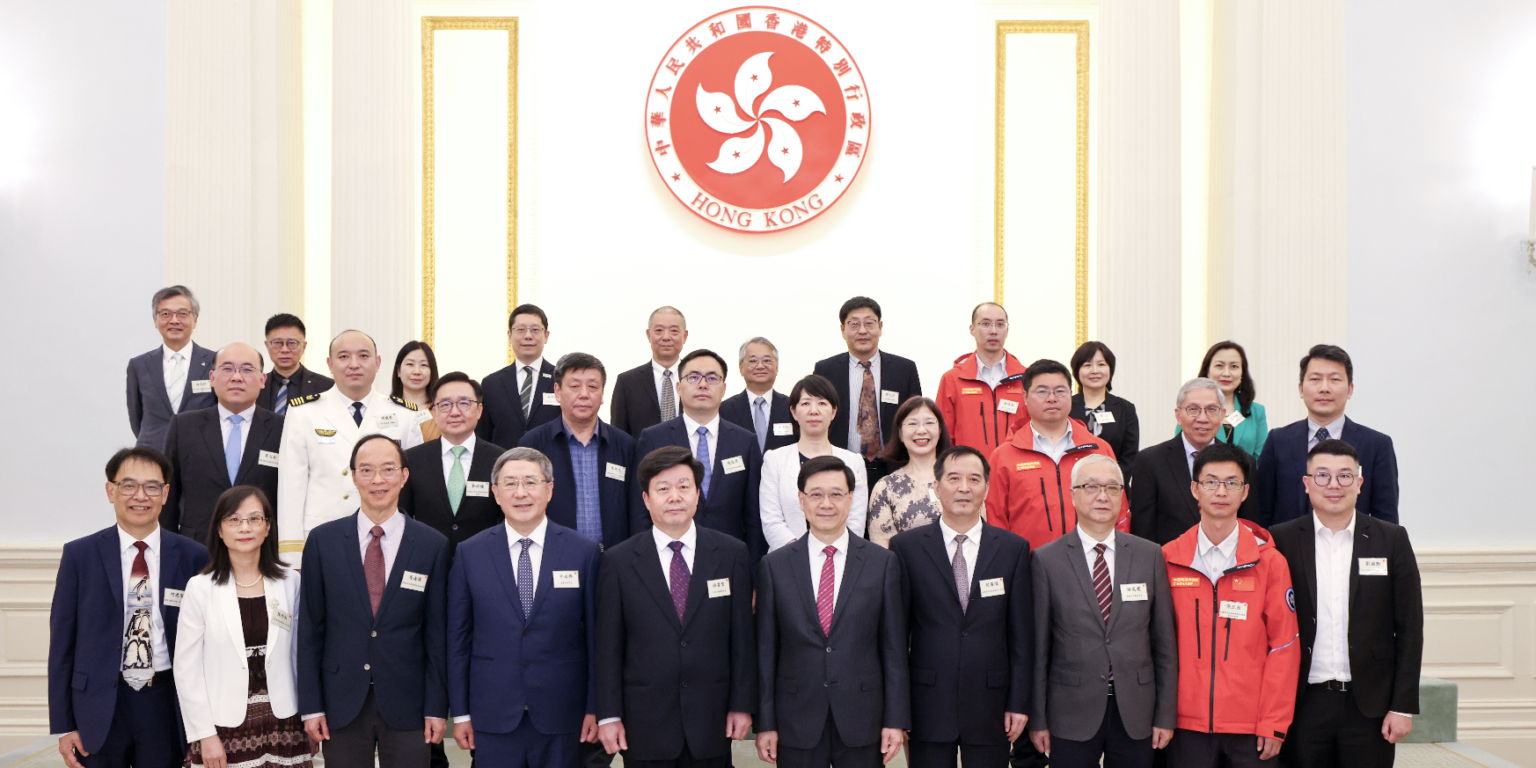

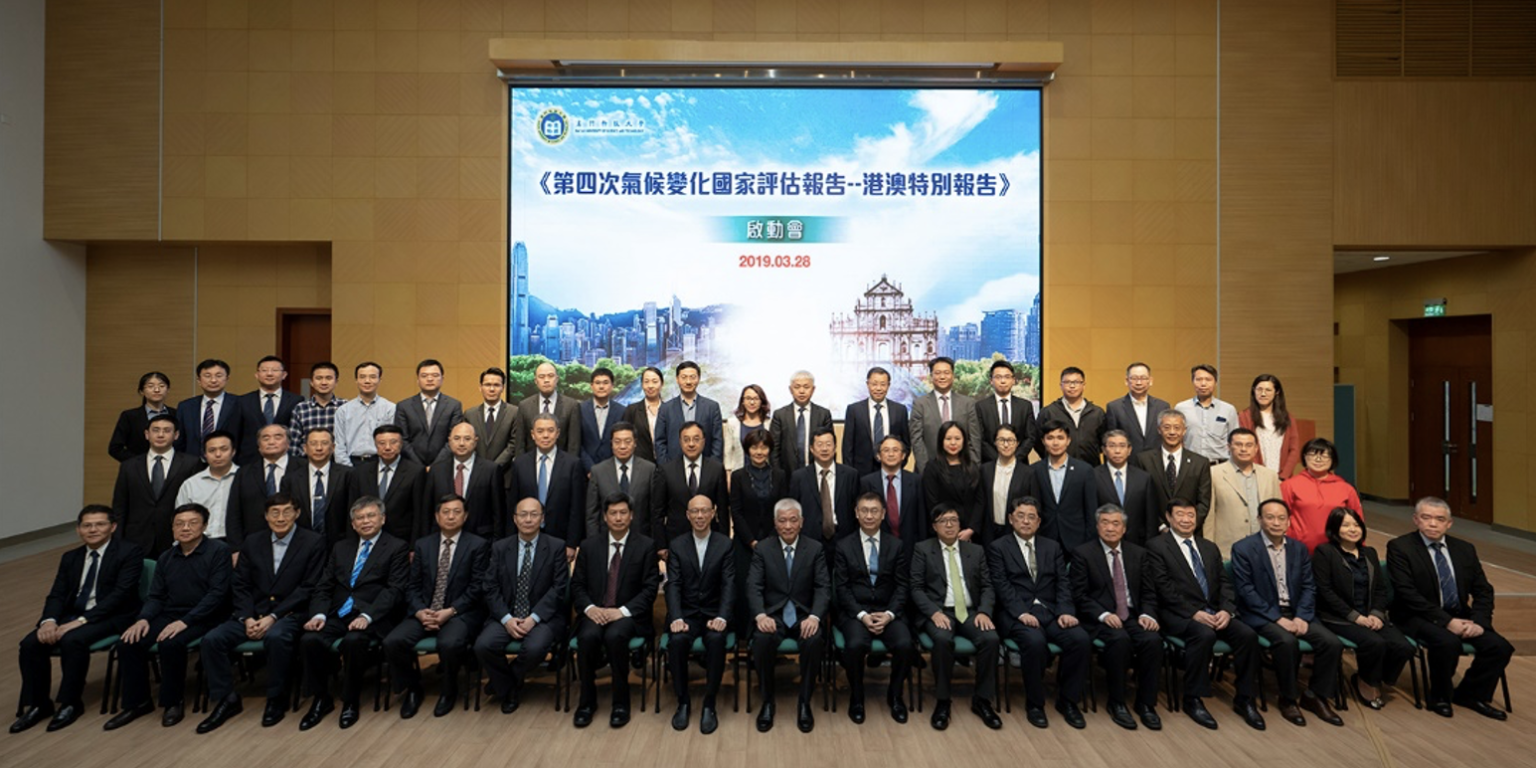

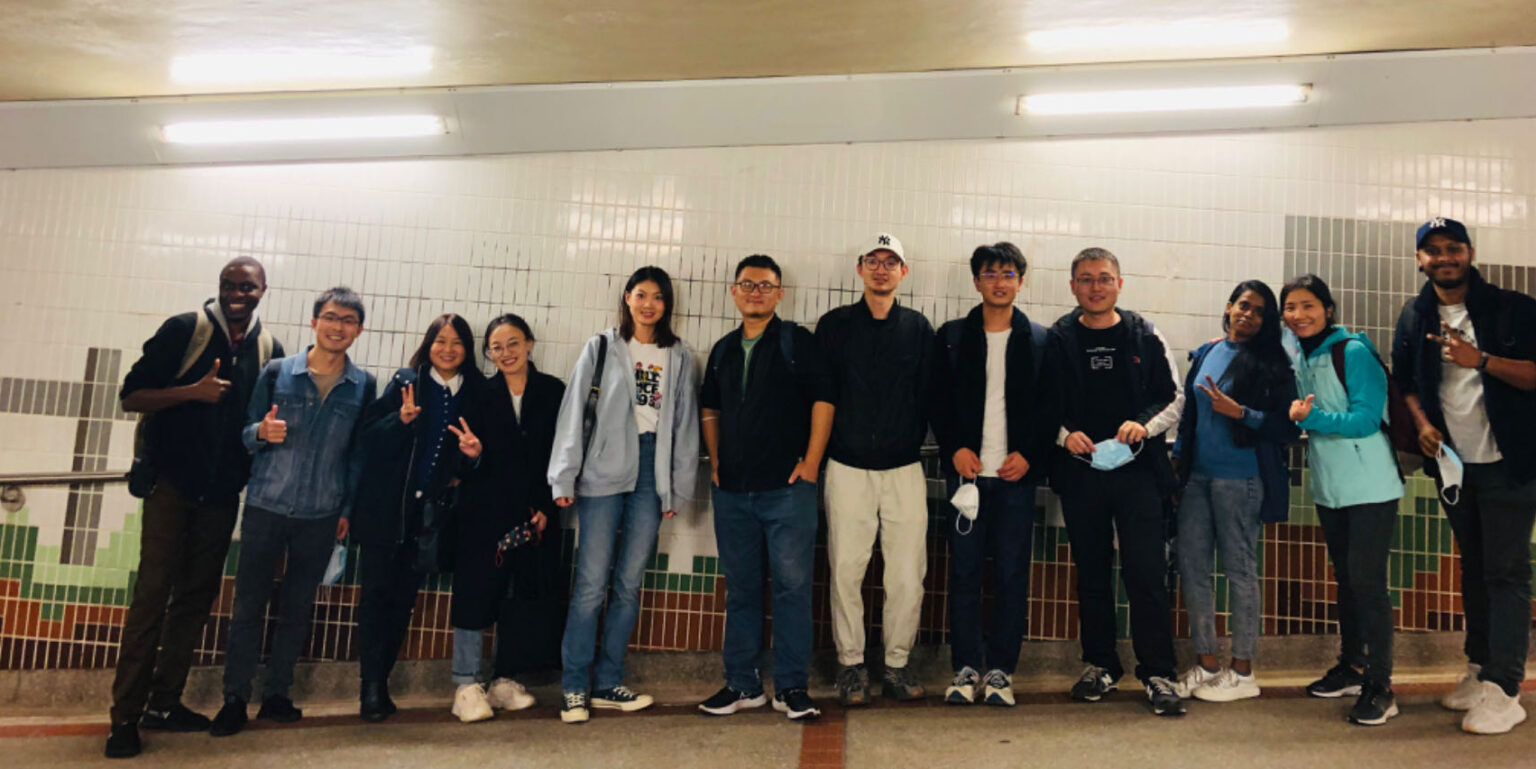
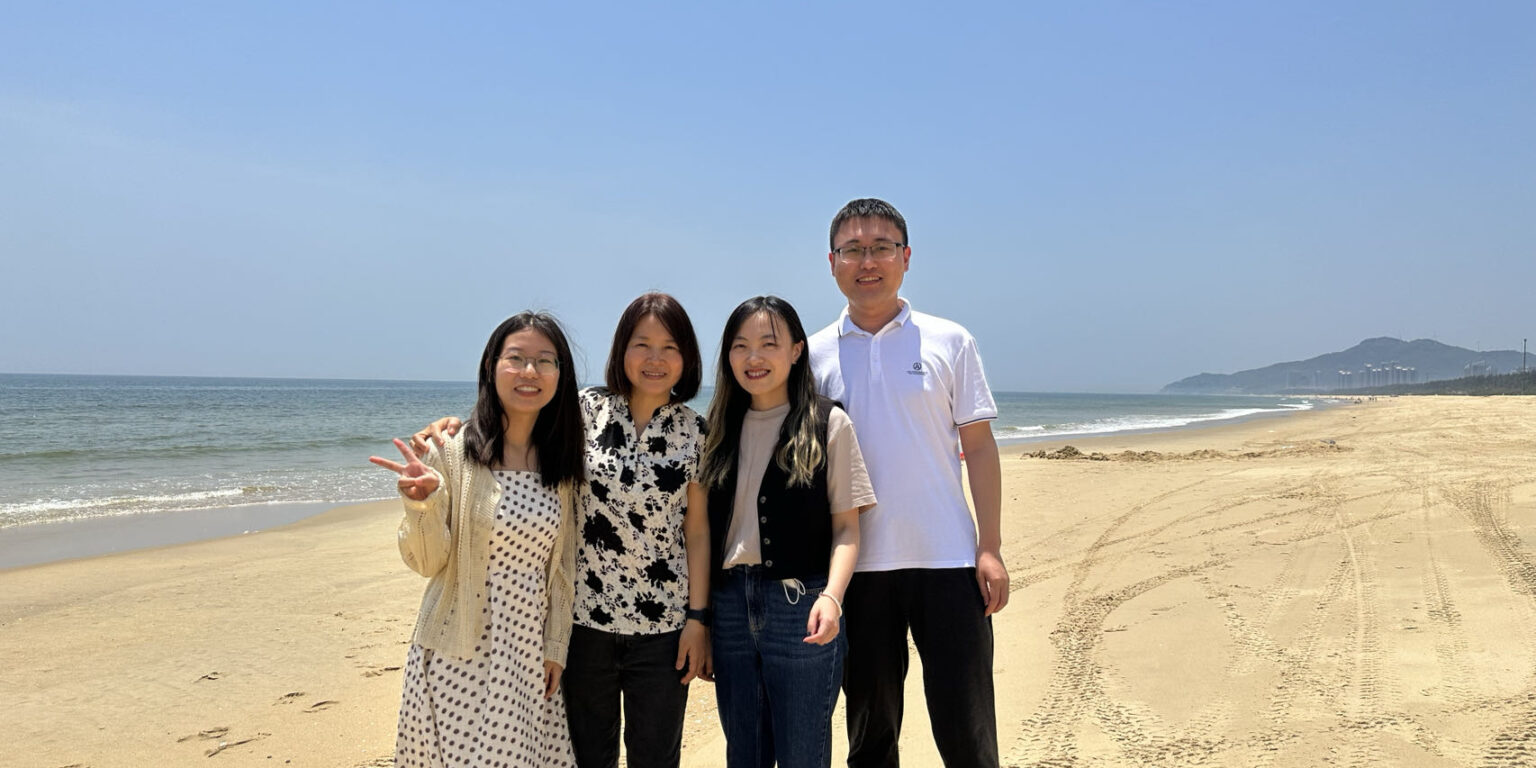
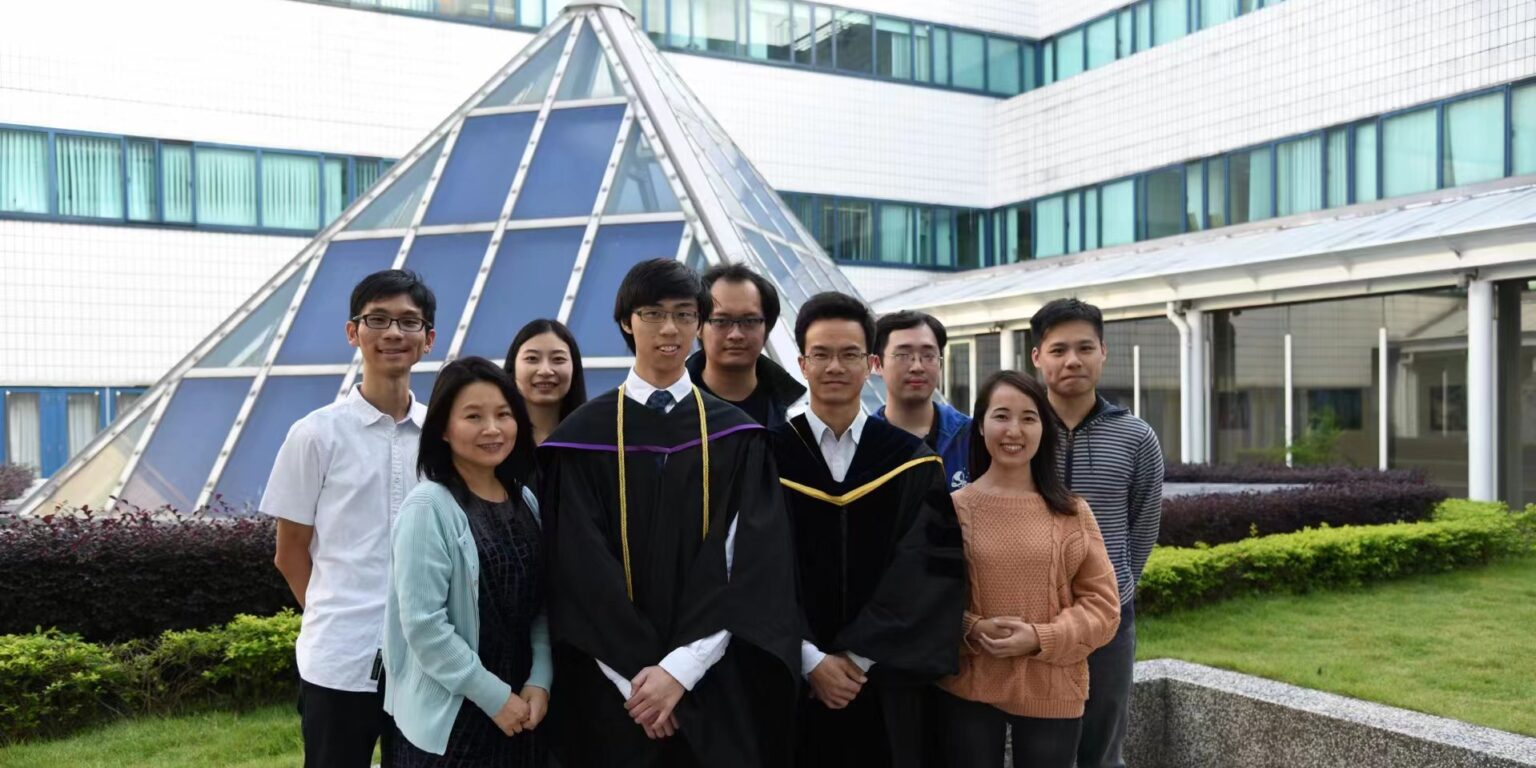
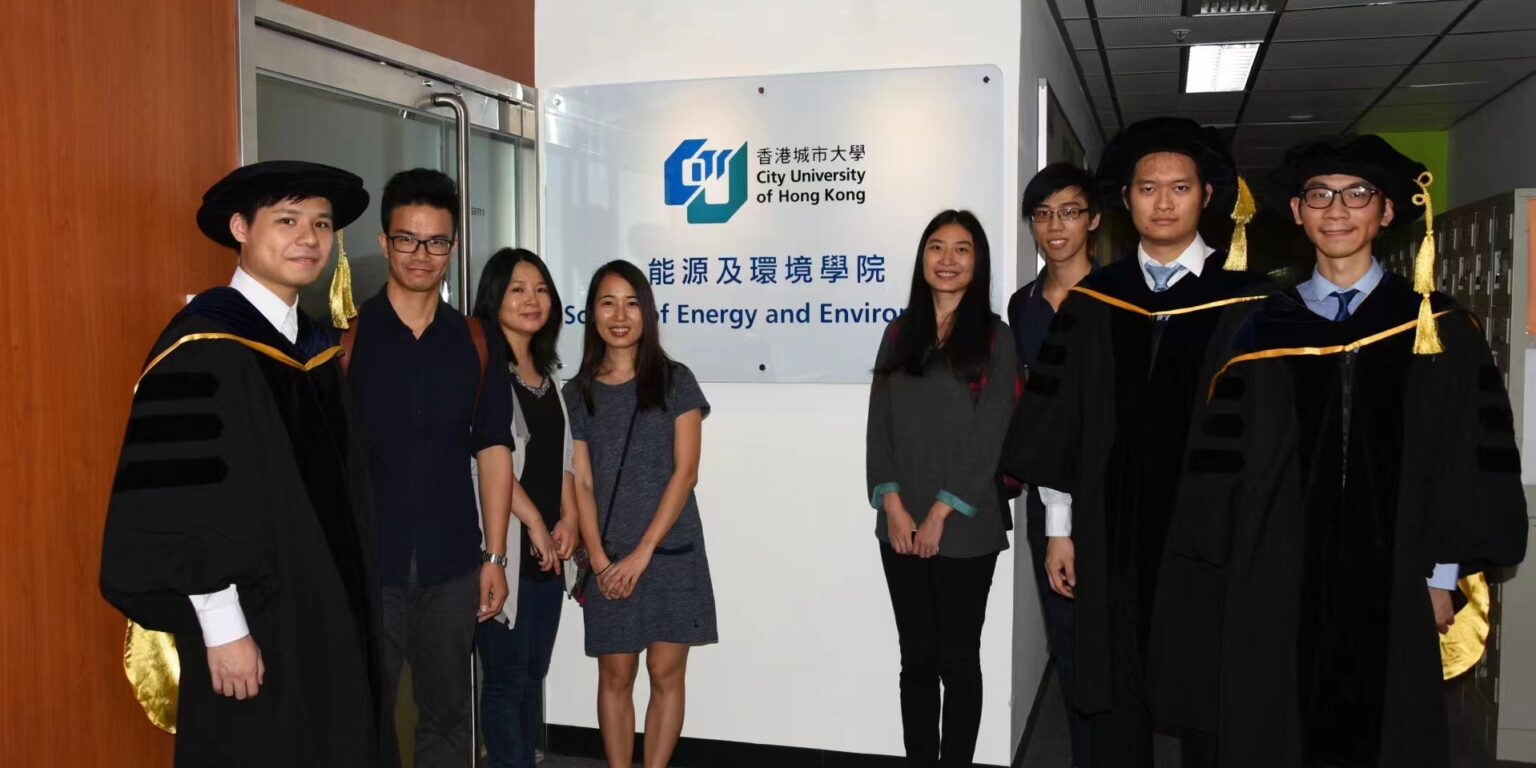

About Professor Zhou
Dr. Wen Zhou is Distinguished Professor at Fudan University, serving as the Deputy Director of the Department of Atmospheric and Oceanic Sciences at Fudan University and Director of the Institute of Ice, Snow, and Climate Change at Polar Research Institute of China. Before joining Fudan in 2022, she was a tenured Professor at City University of Hong Kong. [Curriculum Vitae]
Wen’s research focuses on the monsoon climate of East Asia, tropical intraseasonal oscillations, and the different types of El Niño and their effects on climate. We aim to understand the variability and predictability of the East Asian winter/summer monsoon and to detect and attribute climate variability and climate extremes over the Asia-Pacific region. We also look to advance our understanding of natural hazards such as flood and drought, cold surges and heat waves, and sea level rise and storm surge over the Asia-Pacific region and how these relate with different climate drivers in both present and future scenarios.
Researchgate; Google Scholar; Scopus; ORCID
Contact: wen_zhou@fudan.edu.cn
Recent Highlights
Dynamic pathway linking Pakistan flooding to East Asian heatwaves by Zheng-Hang Fu et al. (2024) in Science Advances
Paper cover in Science Advances:
A dry, cracked riverbed near Poyang Lake, China, October 2022. That year, the region suffered a record drought that persisted from July to October. Using observations and a suite of model experiments, Fu et al. showed that the drought was triggered by historic rainfall in Pakistan. Understanding the dynamic pathway linking flooding in Pakistan to East Asian heatwaves and droughts could improve subseasonal predictions of extreme weather events in East Asia.
In this study, we show that two geographically far apart extreme events – floods in Pakistan and heatwaves in East Asia – are linked via atmospheric teleconnections. Pakistan is a “sweet spot” for heavy rainfall there to perturb the westerly jet, leading further to persistent heatwaves in East Asia downstream.
Schematic diagram for the QBO-SST impacting East Asia Summer Precipitation (Fig. 5a in Zhang et al. 2024 Nature Communications)
A stratospheric precursor of East Asian summer droughts and floods by Ruhua Zhang et al. (2024) in Nature Communications
The Asian monsoon is one of the most active monsoon systems in the world, and changes in monsoon precipitation often cause catastrophic weather and climate events including droughts and floods, such as the 2020 Yangtze River floods. Previous studies have explored the causes of droughts and floods in East Asia from the perspectives of ocean-atmosphere, land-atmosphere processes, and dynamics within the troposphere. However, there has been less attention paid to the middle and upper atmosphere. This study suggests a good prospect for using the tropical mid- to upper atmosphere in seasonal forecasts for summer.
Minimizing uncertainties in climate projections and water budget reveals the vulnerability of freshwater to climate change by Oluwafemi E. Adeyeri et al. (2024) in One Earth
Global water scarcity threatens agriculture and human sustainability. Hence, understanding changes in terrestrial water storage (WS) is crucial. By utilizing climate models, reanalysis, and satellite data, we demonstrate the effectiveness of the multivariate bias correction technique in facilitating precise WS representation while ensuring robust water budget closure. Historical data indicate seasonal changes, where forested basins exhibit a WS surplus in the December-January-February season, with a reversal in the June-July-August-September season. Future projections indicate increased June-July-August-September deficits in most Southern Hemisphere basins under the middle-road (SSP 245) scenario and wetter December-January-February conditions under the regional rivalry (SSP 370) scenario. Our findings underscore the intricate interplay between moisture transport, land characteristics, and the resulting WS.
Group Members

Ruhua Zhang
Associate Researcher

Yue Zhang
Associate Researcher

Jinxiao Li
Guest Researcher

Xiaoli Zhou
Postdoc Scholar (2022-)

Bo Tong
Postdoc Scholar (2023-)

Zili Shen
Postdoc Scholar (2023-)

Yuqing Wang
Postdoc Scholar (2023-)

Dushantha Sandaruwan
PhD Student (2021-)

Zekai Ni
PhD Student (2021-)

Zheng-Hang Fu
PhD Student (2023-)

Lunyu Li
PhD Student (2023-)

Hao Wang
PhD Student (2024-)

Yu Zhang
PhD Student (2025-)

Zhuoying Li
Master Student (2022-)

Xin Wang
Master Student (2023-)

Qianqian Wang
Master Student (2024-)
Location: No.2005 Songhu Road, Yangpu District, Shanghai 200438, China


